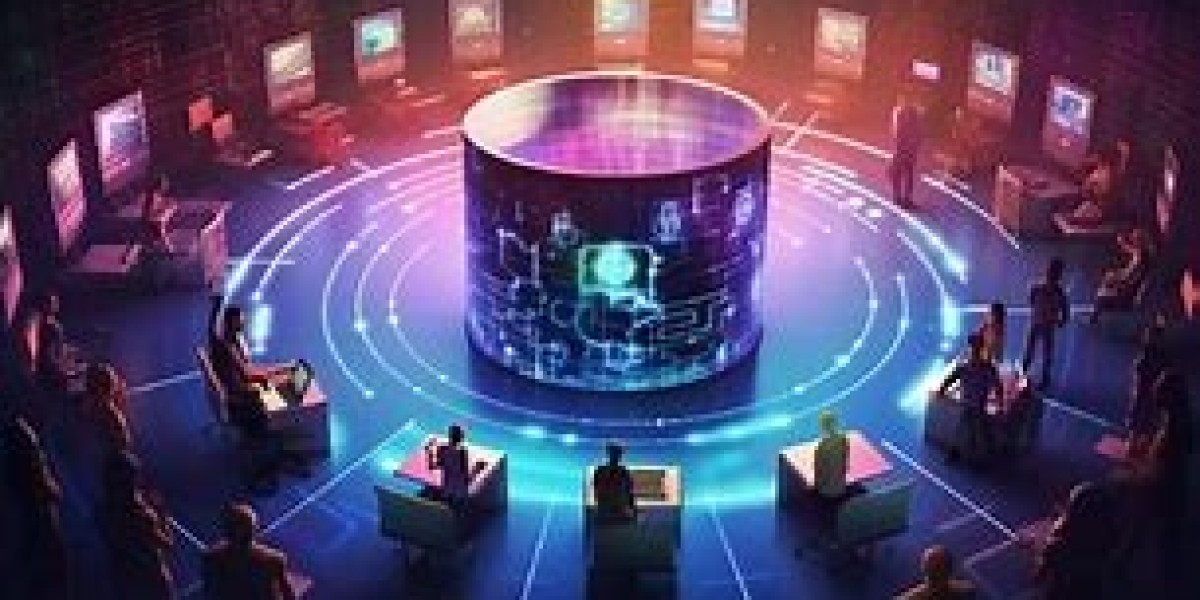In the 21st century, the rapid evolution of technology has revolutionized nearly every aspect of our lives. Among the industries significantly transformed by technological innovation is the events sector. From music festivals and corporate conferences to weddings and sports tournaments, modern event experiences have undergone a complete metamorphosis driven by tech tools. Today, attendees expect more than just a gathering; they expect immersive, seamless, and engaging experiences. This transformation has not only elevated attendee satisfaction but also empowered event organizers to operate more efficiently and creatively.
Digital Transformation in the Event Industry
Digitalization has redefined how events are planned, executed, and experienced. Where once paper invitations, physical tickets, and manual guest lists were the norm, now apps, QR codes, and digital check-ins are standard. Event management software platforms allow organizers to coordinate logistics, track registrations, and manage schedules in real time. Platforms like Eventbrite, Cvent, and Bizzabo offer all-in-one solutions that reduce manual work and minimize errors.
Social media integration has further changed the landscape by allowing real-time sharing, live updates, and wider promotional reach. Through platforms like Instagram, TikTok, and X (formerly Twitter), attendees can broadcast their experience instantly, expanding an event's visibility beyond its physical confines.
Enhanced Attendee Engagement
Audience engagement is one of the biggest beneficiaries of tech adoption in events. Interactive mobile apps are now a staple at many conferences and expos. These apps often include personalized schedules, live polls, Q&A sessions, networking tools, and push notifications. They enable real-time interaction, turning passive attendees into active participants.
Gamification is another growing trend. Event apps may incorporate points systems, leaderboards, or challenges to motivate attendees to explore the event, visit booths, or attend sessions. These mechanics make events more dynamic and help drive desired behaviors from the crowd.
Furthermore, wearable technology has enabled organizers to collect valuable data and provide tailored experiences. For example, RFID-enabled wristbands at large-scale music festivals can facilitate cashless transactions, fast-track entry, and even personalize light shows based on user preferences.
Virtual and Hybrid Events
Perhaps one of the most dramatic shifts brought by technology is the rise of virtual and hybrid events. Triggered largely by the COVID-19 pandemic, virtual events allowed the industry to survive and even thrive during global lockdowns. Platforms like Zoom, Hopin, and Microsoft Teams became go-to tools for hosting everything from academic symposiums to product launches.
Hybrid events—where in-person and online components coexist—are now common. They enable organizers to reach a broader audience and offer flexibility for attendees. These formats also open new revenue streams, reduce travel-related costs, and increase inclusivity for those unable to attend physically.
According to a 2023 report by Grand View Research, the global virtual events market size was valued at $114.12 billion in 2021 and is expected to expand at a compound annual growth rate (CAGR) of 21.4% from 2022 to 2030. This reflects a growing demand for remote participation and digital connectivity in events.
Real-Time Analytics and Data-Driven Insights
One of the most transformative impacts of technology is the ability to gather and analyze data in real time. Event organizers can now monitor foot traffic, session attendance, engagement levels, and even sentiment analysis through AI tools. These insights allow for immediate adjustments during the event and better planning for future iterations.
Heat maps from RFID tracking, for example, can reveal which parts of a venue were most visited. Feedback forms, polls, and social media listening provide qualitative insights. This data helps organizers tailor content, optimize layout, improve catering choices, and enhance overall attendee satisfaction.
Augmented Reality (AR) and Virtual Reality (VR)
Immersive technologies like AR and VR are increasingly being used to create memorable experiences. In the trade show and exhibition world, AR can bring static booths to life with interactive 3D displays, virtual product demos, or gamified exploration paths.
VR allows for entirely virtual environments where attendees can explore simulated spaces, attend keynotes, and even network using avatars. For example, auto manufacturers have used VR at expos to offer test drives of new models in a completely virtual setting. These innovations provide a "wow" factor while also accommodating those who might not be physically present.
Artificial Intelligence and Chatbots
AI is playing a growing role in enhancing user experience and streamlining operations. Chatbots integrated into event websites or apps can answer frequently asked questions, guide attendees, or troubleshoot common problems. These AI-driven assistants reduce the need for human staffing and offer 24/7 support.
AI also supports personalization at scale. Based on past behavior, preferences, and interests, AI can recommend sessions, connect attendees with like-minded peers, and even predict crowd movement to optimize scheduling and layout.
Sustainability Through Technology
Sustainability has become a pressing concern for event organizers, and technology is aiding in creating greener events. Digital tickets, paperless schedules, and virtual gift bags reduce physical waste. Smart lighting and HVAC systems optimize energy usage during events.
Furthermore, virtual and hybrid formats significantly cut down on travel-related carbon emissions. According to a 2022 report by The Nature Conservancy, shifting from in-person to virtual meetings can reduce an event's carbon footprint by up to 94%, depending on the size and format. These savings are increasingly relevant as organizations aim to meet ESG goals and align with environmentally conscious audiences.
Challenges and Considerations
Despite its numerous benefits, technology also brings challenges. Data privacy and cybersecurity are top concerns, especially when collecting personal information from attendees. Ensuring compliance with regulations like GDPR is essential.
Technical issues can disrupt virtual and hybrid events. Poor internet connections, software bugs, or hardware failures can impact attendee experience and damage an event's reputation. Moreover, not all attendees may be tech-savvy, requiring user-friendly designs and dedicated support.
Cost is another consideration. While some technologies are scalable and affordable, others—like VR environments or custom-built apps—can be expensive to implement. Organizers must weigh the return on investment and prioritize technologies that align with their goals and audience needs.
The Future of Tech in Events
Looking ahead, the role of technology in events is only expected to grow. Innovations like holographic speakers, AI-driven matchmaking, and blockchain-based ticketing are already in development or early adoption stages. 5G connectivity will further enhance real-time communication and enable more advanced mobile experiences.
Voice assistants, facial recognition, and biometric verification could soon become standard for check-ins and security. Additionally, the integration of Internet of Things (IoT) devices could allow for smarter venues that automatically adjust settings based on attendee flow and preferences.
The concept of the "phygital" event—blending physical and digital experiences—is becoming the new gold standard. In this model, technology not only facilitates logistics but also becomes a core part of the creative vision and attendee journey.
Conclusion
The impact of technology on modern event experiences is profound and far-reaching. From enhancing engagement and accessibility to enabling sustainability and data-driven decision-making, technology has become an indispensable asset in the world of event planning and execution. While challenges remain, the benefits far outweigh the drawbacks, and continuous innovation promises an exciting future for event experiences.
As we move forward, the most successful events will be those that blend human creativity with technological power, creating moments that are not just seen and heard but truly felt—both in person and online.



